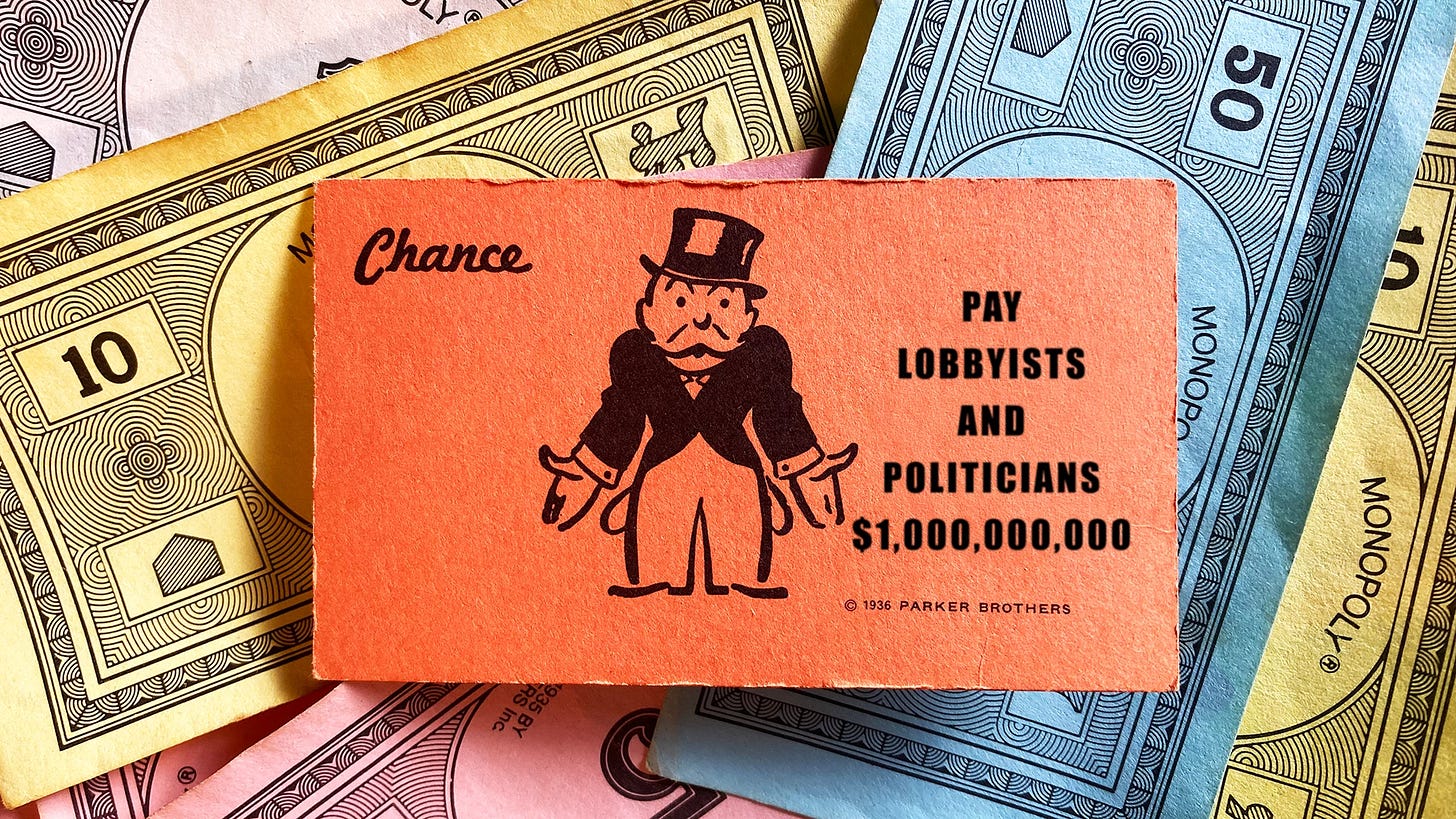Go offline with the Player FM app!
Why Should We Allow Food Monopolies? Let’s Bust the System!
Manage episode 455984598 series 56780
How are monopolistic corporations able to gain their economic dominance? By getting politicians to give it to them.
Consider the old robber barons. They weren’t brilliant investors or managers, but ruthless exploiters of government giveaways and bribers of officials who permitted their monopolistic thievery.
Likewise, today’s monopoly players have captured local, state, and national markets – not through honest competition, but by getting public officials to subsidize their expansion and to rig the rules against small competitors. Monopolizers buy this favoritism with the legalized bribes of campaign donations they lavish on compliant lawmakers.
Investigative digger Stacy Mitchell recently documented how this corrupt political favoritism has allowed massive retail chains like Walmart, Kroger, and Dollar Store to crush thousands of local grocers. This has left millions of Americans living in “food deserts” – poor and rural communities with no food store.
What happened? As grocery chains spread from local to regional to national, they demanded that food manufacturers give them big discounts, giving them a dramatic monopoly pricing advantage over independent rivals. So, hometown grocers began hemorrhaging customers... and going broke.
This raw, anti-competitive, price discrimination was a flagrant violation of America’s anti-monopoly law – but here came Big Money to protect the monopolists. In 1980, as Ronald Reagan was railing against “silly” consumer protection laws, supermarket lobbyists poured campaign cash into top officials of both parties. What they bought was bipartisan agreement to simply stop enforcing the “fusty” old antitrust law that had protected a competitive grocery economy for nearly 50 years.
But good news! That useful, highly-effective law is still on the books, so let’s build a long-term grassroots campaign to rejuvenate it and re-outlaw monopolization, redlining, and price gouging by food giants. For more information, go to Institute for Local Self Reliance: ilsr.org.
Jim Hightower's Lowdown is a reader-supported publication. To receive new posts and support my work, consider becoming a free or paid subscriber.
666 episodes
Manage episode 455984598 series 56780
How are monopolistic corporations able to gain their economic dominance? By getting politicians to give it to them.
Consider the old robber barons. They weren’t brilliant investors or managers, but ruthless exploiters of government giveaways and bribers of officials who permitted their monopolistic thievery.
Likewise, today’s monopoly players have captured local, state, and national markets – not through honest competition, but by getting public officials to subsidize their expansion and to rig the rules against small competitors. Monopolizers buy this favoritism with the legalized bribes of campaign donations they lavish on compliant lawmakers.
Investigative digger Stacy Mitchell recently documented how this corrupt political favoritism has allowed massive retail chains like Walmart, Kroger, and Dollar Store to crush thousands of local grocers. This has left millions of Americans living in “food deserts” – poor and rural communities with no food store.
What happened? As grocery chains spread from local to regional to national, they demanded that food manufacturers give them big discounts, giving them a dramatic monopoly pricing advantage over independent rivals. So, hometown grocers began hemorrhaging customers... and going broke.
This raw, anti-competitive, price discrimination was a flagrant violation of America’s anti-monopoly law – but here came Big Money to protect the monopolists. In 1980, as Ronald Reagan was railing against “silly” consumer protection laws, supermarket lobbyists poured campaign cash into top officials of both parties. What they bought was bipartisan agreement to simply stop enforcing the “fusty” old antitrust law that had protected a competitive grocery economy for nearly 50 years.
But good news! That useful, highly-effective law is still on the books, so let’s build a long-term grassroots campaign to rejuvenate it and re-outlaw monopolization, redlining, and price gouging by food giants. For more information, go to Institute for Local Self Reliance: ilsr.org.
Jim Hightower's Lowdown is a reader-supported publication. To receive new posts and support my work, consider becoming a free or paid subscriber.
666 episodes
All episodes
×Welcome to Player FM!
Player FM is scanning the web for high-quality podcasts for you to enjoy right now. It's the best podcast app and works on Android, iPhone, and the web. Signup to sync subscriptions across devices.





